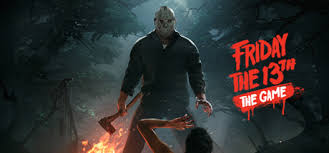It took me longer than most people to get into Twitch. The appeal of watching somebody else play a game was lost on me. At best, I’m watching somebody else play something I could be playing instead, and at worst I’m shouting in frustration as the streamer does everything
I wouldn’t do. My problem, I soon realized, was that I was seeking out games I would normally play — RPGs, action-adventure games, and the like.
These aren’t the type of games one can simply drop into mid-stream and enjoy, nor are they particularly engaging to watch. It wasn’t until I fumbled through the most popular streams that things finally clicked for me. And no game clicked better than PLAYERUNKNOWN’S BATTLEGROUNDS.
PUBG — or Plunkbat, as I wish people would call it — seems a game that needs no introduction. It’s the large-scale multiplayer battle royale shooter from developer Bluehole and the eponymous PlayerUnknown that everyone won’t shut up about. Since releasing earlier this year on Steam Early Access, it quickly became the most-played third-party game on the platform.
Its 300,000 concurrent players dwarves the next-most-played game on Steam after it, Path of Exile, by a whopping 500%. On Twitch, its popularity is equally impressive.
At any given time, more than 90,000 viewers tune in to watch streamers play PUBG, regularly making it the most watched game on Twitch. Its viewership sits comfortably above even the likes of League of Legends, which happens to be the most-played game on the planet. So what is it that makes PUBG so special?
Bluehole didn’t invent a new genre with PUBG. They didn’t revolutionize any mechanics. Individually, some of its pieces are even rough around the edges: bugs and glitches litter the game world, physics often run haywire, there’s only one map to date (though a second map was just announced at Gamescom), and there’s no true competitive mode to speak of yet. It’s a no-frills kind of game, which is also why it’s so popular.
They’ve taken a simple list of ingredients and crafted something that’s more than the sum of its parts. This isn’t some kind of gourmet bullshit, though — PUBG is the In-N-Out Burger of multiplayer video games.
A lot of gamers, at least from my generation, are so accustomed to their games being inundated with lore, complex rules, and layering mechanics that take hundreds of hours to understand and take advantage of. Strategy games like Age of Empires or Civilization come to mind, or MMOs like Dark Age of Camelot.
Even more modern games, like the aforementioned
Path of Exile, are steeped in increasingly complex mechanics and a deep understanding of what you’re seeing in order to fully enjoy as a spectator.And, thankfully, there will always be a place for those kinds of games. But those aren’t the games people are watching, because for casual viewers, it’s boring as hell. The future of esports in a competitive sense is complicated and beyond my stupid mental capacity, but the future of spectator sports is games like PUBG.
The same reasons that make it so easy for players to drop in and play it are the same reasons that make it so easy for viewers to drop in and watch it: the rules are simple, the mechanics are straight-forward, and it’s easy to follow the action. I don’t need to know what the meta is (I don’t need to know what meta means),
I don’t need to know the team composition, I don’t need to know a player’s Skill Rating. There’s no context necessary for anything that happens, because there is no context.
While there are still plenty of players forming groups and strategizing at a high level in PUBG, it’s not a necessary barrier of entry for enjoying the experience like it is in so many other games. This is why, even though more people are playing Overwatch than PUBG, four times as many people are watching the latter.
This is the future of esports where it really counts. It won’t matter much that Starcraft 2 can fill a stadium of its biggest fans for its biggest events every year if it can’t muster more than 3,000 views any given day the rest of the year, and companies like Amazon (who bought Twitch in 2014, and is in active development on a number of games made specifically for streaming) should be taking note.
Viewers aren’t tuning in for a full-course meal of a game — all they want is a chicken dinner.



